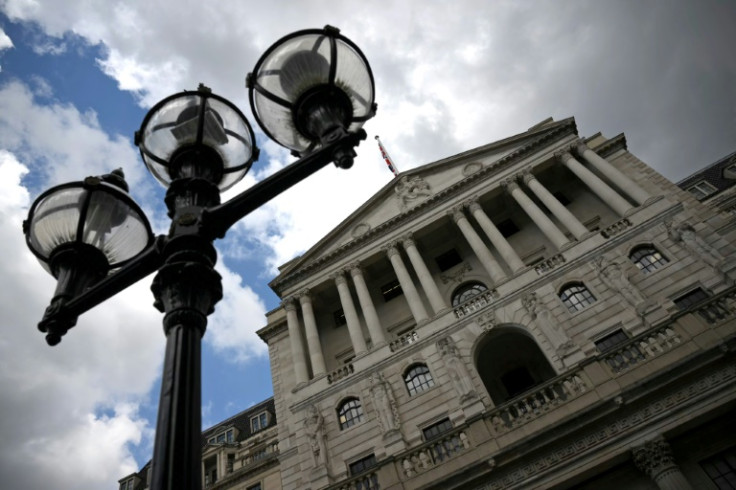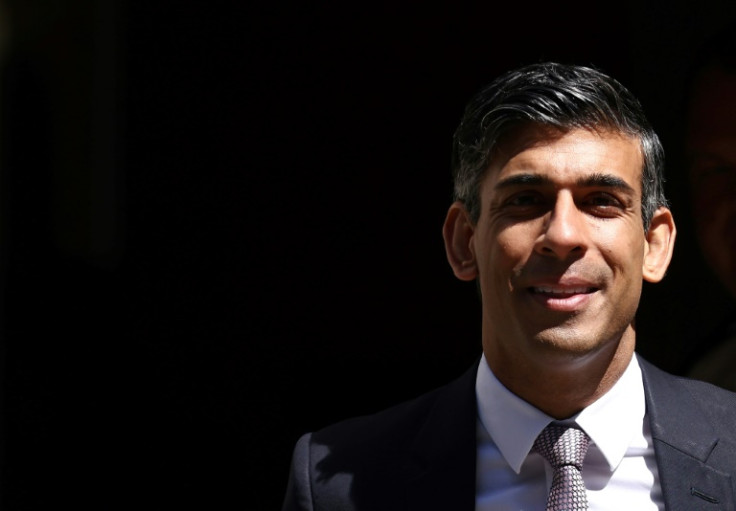Bank of England set to increase interest rate for the 13th time in a row
The Bank of England is expected today to raise the interest rate for the 13th time in a row, despite recent forecasts of an improving economic outlook.

The Bank of England is expected today to raise the interest rate for the 13th time in a row.
A 13th consecutive increase would be a record in the UK after the rate was bumped up for a 12th time in March of this year.
Despite recent forecasts of an improving economic outlook, the latest inflation figures, published yesterday, meant the writing was on the wall for another rise in prices.
UK inflation remained stuck at 8.7 per cent in May, worse than the 8.4 per cent that was anticipated. Wednesday's data marked the fourth month in a row that price hikes have exceeded forecasts.
Soaring prices have caused a cost-of-living crisis to run rampant across the UK, with rising food and energy bills contributing to record-breaking inflation levels.
The Bank Rate had stood at 0.1 per cent in December 2021, before inflation began to hamper business growth in the aftermath of the COVID-19 Pandemic.
Russia's invasion of Ukraine the following February then exacerbated the inflation problem, with soaring energy costs piling additional misery on Western nations.
Average energy bills in the UK increased by 54 per cent in April 2022 and rose a further 27 per cent in October last year.
These considerable extra costs, faced by households and businesses alike, are still filtering through in the form of stubborn inflation for many goods and services.
The UK's Conservative government, headed by Prime Minister Rishi Sunak, had last month unveiled a budget aimed at tackling a cost-of-living crisis – which has sparked widespread strikes as many worker's wages fail to keep up with the increasing demand.
But it seems his economic measures have failed to prevent a 13th consecutive interest rate bump.
And now, growing interest rate expectations over recent weeks have led to another problem - mortgage prices.
Data from Moneyfacts this week showed that average rates for two-year fixed mortgage deals have risen above 6 per cent.
In support of these findings, The Institute for Fiscal Studies said interest rate increases over the past year were already on track to absorb 8.3 per cent of mortgage holders' disposable income — a figure that rises to 20 per cent for 1.4 million people.
According to the think-tank, those in their 30s will see the biggest increases to their monthly mortgage payments, paying almost £360 more on average – an 11 per cent hit to their disposable incomes.

The news has increased pressure on Prime Minister Rishi Sunak, who insists that the government must stick to his economic plan.
Writing on his personal Twitter account, Sunak wrote that the UK and many countries face "profound economic challenges", citing "Putin's illegal invasion of Ukraine saw all our energy prices rocket".
He said they took "difficult but fair decisions to stabilise the economy" in the Autumn Statement (following Liz Truss's destabilising mini-Budget), and listed support given to households, such as a reduction in energy bills and freezing fuel duty.
The PM also said he's been "focused on tackling longer-term problems", as well as inflation, with a particular focus on energy security.
Sunak added: "I know things are difficult, but if we can hold our nerve I'm confident this plan will deliver."
One of Sunak's five "Pledges for Britain" in December 2022 was to halve inflation in a year.
And addressing this target at Prime Minister's Questions yesterday, he said the IMF had strongly endorsed his government's approach to cutting into that figure.
But the Labour leader, Keir Starmer, accused him of being out of touch with the fears of homeowners, who were now forecast to be facing extra mortgage repayments of £2,900 a year from a "Tory mortgage penalty".
Now he was warned by experts about this as long ago as autumn last year, but he either didn't get it, didn't believe it or didn't care, because he certainly didn't do anything and when I raised this a couple of months ago, he had the gall to stand at that dispatch box and say he was delivering for homeowners," said Starmer.
The anticipated interest rate rise means a recession is now "inevitable", according to many experts.
Karen Ward, an executive at JP Morgan Asset Management, warned that the Bank of England has to "create a recession" to control inflation.
Ward, who is also a member of Chancellor Jeremy Hunt's economic advisory council, told Radio 4's Today program there are "certainly signs" that a price-wage spiral is emerging, which the central bank "has to nip in the bud".
Meanwhile, Hunt will meet with bank chiefs on Friday to discuss the mortgage crisis.
© Copyright IBTimes 2025. All rights reserved.






















